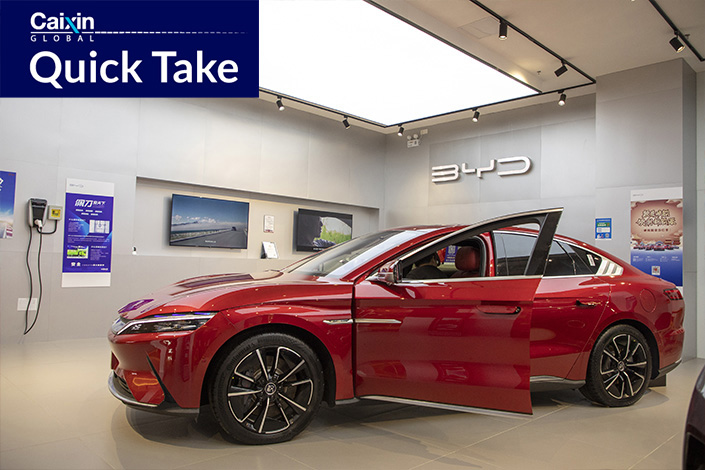
What’s new: BYD Co. Ltd. has become the latest electric vehicle (EV) brand to announce a price hike on the surging cost of raw materials and reduced government subsidies.
The unit price of the Shenzhen-listed EV- and battery-maker’s vehicles will increase by up to 7,000 yuan ($1,102) at the start of next month, the firm said in a late Friday social media post (link in Chinese), adding that the change will not affect customers who have already made a down-payment on a new car.
The increase will be between 1,000 yuan and 7,000 yuan per vehicle, the post said. The models affected cost between 44,900 yuan and 314,800 yuan after subsidies are deducted, according to the BYD website.
Shares of BYD opened down 1.7% on Monday but later climbed 3% to reach 252.6 yuan before the noon break.
Background: Other EV-makers, Tesla and Xpeng included, have already raised their prices in China, as Beijing works toward ending financial subsidies altogether for vehicles that don’t burn fossil fuels. The subsidies that such car buyers receive were cut by 30% at the beginning of 2022 and are destined to be phased out by next year, according to a notice by the Ministry of Finance.
BYD was China’s best-selling EV-maker last year, with 584,000 vehicles sold, followed by SAIC-GM-Wuling Automobile Co. Ltd. and Tesla Inc., figures from the China Passenger Car Association showed. According to another set of data by the China Association of Automobile Manufacturers, a total of 3.52 million EVs were sold last year in the country, representing a nearly 158% jump year-on-year.
Last November, BYD increased the price of its battery products by at least 20%, due to soaring raw materials costs, especially that of lithium, which was up 434% year-on-year on the last day of 2021.
Contact reporter Manyun Zou (manyunzou@caixin.com) and editors Heather Mowbray (heathermowbray@caixin.com) and Flynn Murphy (flynnmurphy@caixin.com)
Get our weekly free Must-Read newsletter.







